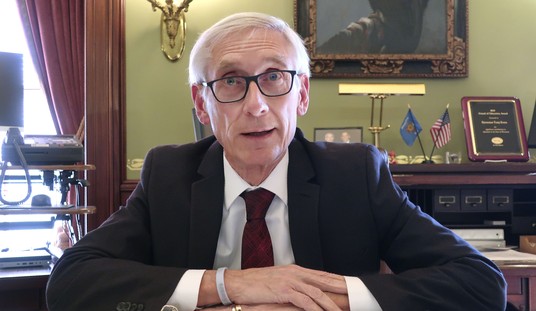"Law enforcement) interviewed Mr. Shahzad ... under the public safety exception to the Miranda rule. ... He was eventually ... Mirandized and continued talking."
-- John Pistole, FBI deputy director, May 4
WASHINGTON -- All well and good. But what if Faisal Shahzad, the confessed Times Square bomber, had stopped talking? When you tell someone he has the right to remain silent, there is a distinct possibility that he will remain silent, is there not? And then what?
The authorities deserve full credit for capturing Shahzad within 54 hours. Credit is also due them for obtaining information from him by invoking the "public safety" exception to the Miranda rule.
But then Shahzad was Mirandized. If he had decided to shut up, it would have denied us valuable information -- everything he is presumably telling us now about Pakistani contacts, training, plans for other possible plots beyond the Times Square attack.
The public safety exception is sometimes called the "ticking time bomb" exception. But what about information regarding bombs not yet ticking but being planned and readied to kill later?

Think of the reason why we give any suspect Miranda warnings. It is not that you're prohibited from asking questions before Mirandizing. You can ask a suspect anything you damn well please. You can ask him if he picks his feet in Poughkeepsie -- but without Miranda, the answers are not admissible in court.
In this case, however, Miranda warnings were superfluous. Shahzad had confessed to the car bombing attempt while being interrogated under the public safety exception. That's admissible evidence. Plus, he left a treasure trove of physical evidence all over the place -- which is how we caught him in two days.
Recommended
Second, even assuming that by not Mirandizing him we might have jeopardized our chances of getting some convictions -- so what? Which is more important: (a) gaining, a year or two hence, the conviction of a pigeon -- the last and now least important link in this terror chain -- whom we could surely lock up on explosives and weapons charges (and others), or (b) preventing future terror attacks on Americans by learning from Shahzad what he might know about terror plots in Pakistan and sleeper cells in the United States?
Even posing this choice demonstrates why the very use of the civilian judicial system to interrogate terrorists is misconceived, even if they are, like Shahzad, (naturalized) American citizens. America is the target of an ongoing jihadist campaign. The logical and serious way to defend ourselves is to place captured terrorists in military custody as unlawful enemy combatants. As former anti-terror prosecutor Andrew McCarthy notes in National Review, one of the six World War II German saboteurs captured in the U.S., tried by military commission and executed was a U.S. citizen. It made no difference.
But let's assume you're wedded to the civilian law-enforcement model, as is the Obama administration. At least make an attempt to expand the public safety exception to Miranda in a way that takes into account the jihadist war that did not exist when that exception was narrowly drawn by the Supreme Court in the 1984 Quarles case.
The public safety exception should be enlarged to allow law enforcement to interrogate, without Mirandizing, those arrested in the commission of terrorist crimes (and make the answers admissible) -- until law enforcement is satisfied that vital intelligence related to other possible plots and threats to public safety has been sufficiently acquired.
This could be done by congressional statute. Or the administration could, in an actual case, refrain from Mirandizing until it had explored the outer limits of any plot -- and then defend its actions before the courts, resting its argument on the Supreme Court's own logic in the Quarles case: "We conclude that the need for answers to questions in a situation posing a threat to the public safety outweighs the need for the (Miranda) rule."
Otherwise, we will be left -- when a terrorist shuts up as did the underwear bomber for five weeks -- in the absurd position of capturing enemy combatants and then prohibiting ourselves from obtaining the information they have, and we need, to protect innocent lives.
My view is that we should treat enemy combatants as enemy combatants, whether they are U.S. citizens (Shahzad) or not (the underwear bomber). If, however, they are to be treated as ordinary criminals, then at least agree on this: no Miranda rights until we know everything that public safety demands we need to know.
























Join the conversation as a VIP Member